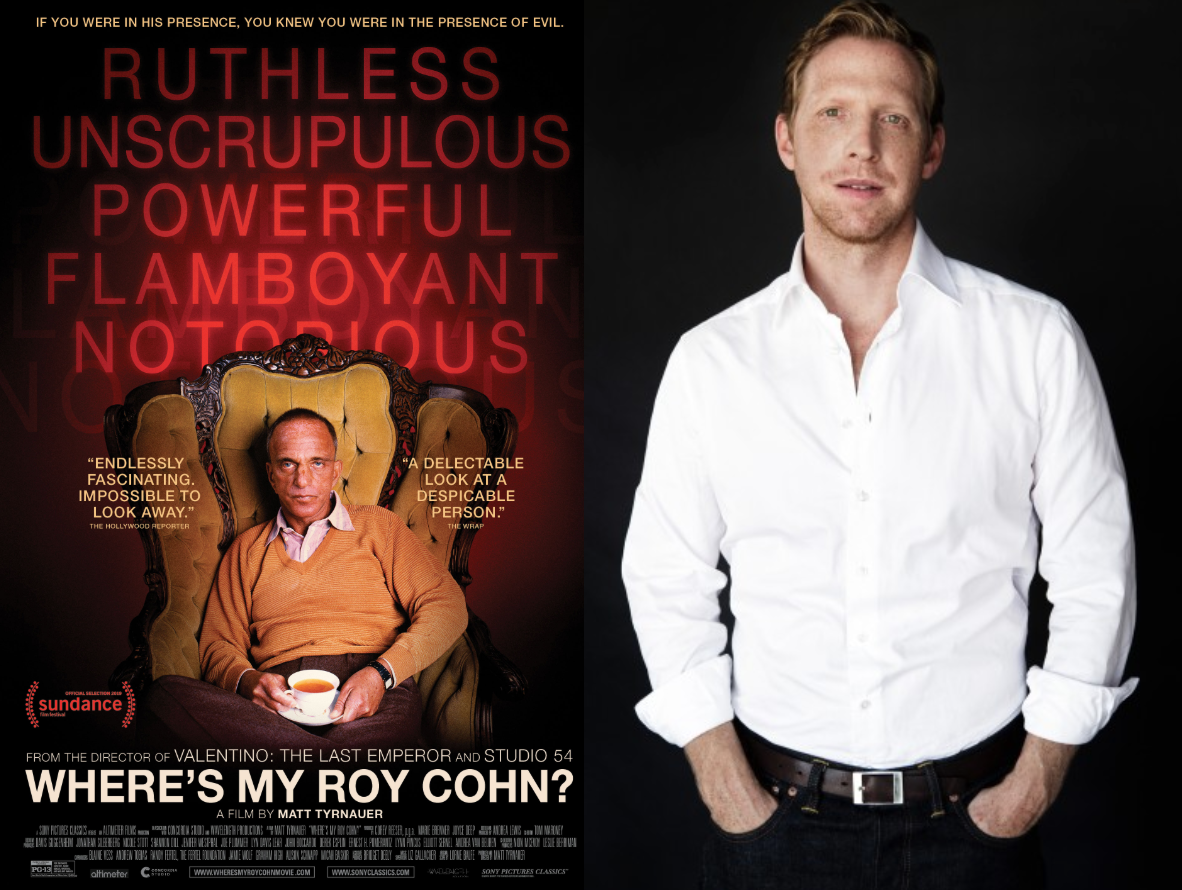Matt Tyrnauer Dishes on His New Film, 'Where's My Roy Cohn?'

Listen
On this episode of ZUCKER, director Matt Tyrnauer talks about his latest project, “Where's My Roy Cohn?” The new documentary tracks the life and times of Roy Cohn, an American lawyer who represented Donald Trump and stood at the center of the Army-McCarthy Hearings and Rosenberg Trial.
On what drove Roy Cohn: I think self-hatred combined with a narcissistic personality disorder. It seems to be pretty clear at the end of the day. He was a gay, Jewish guy... He was so powerful and so effective and so particular. And taking these personal inadequacies and persecuting other people for his own faults. Even in the context of anti-semetism, he’s the lawyer on the prosecution team for the Rosenbergs, who were Jewish people accused of espionage. And he really was the one who pushed for the electric chair for Ethel Rosenberg especially, who was absolutely innocent.
On the Army–McCarthy hearings: In examining this material and in light of Trump’s surprise ascent to the presidency and his being a reality TV star — which really is the key to his electoral college victory — along with the political tactics taught to him by Cohn, I realized that the Army-McCarthy hearings in the mid-50s were the first nationally televised moment that everyone was transfixed by. And if you look at them, they went on for more than thirty days, all three networks. It really is like a reality TV show with Roy Cohn and Joseph McCarthy at the center of it. It’s an open-ended narrative, with a set of characters, and a lot of drama and accusation. There’s even a love story at the center of it, which is about Roy Cohn and his maybe-boyfriend.
On Trump dropping Cohn: Cohn succeeds marvelously in his demagoguery and he becomes a mafia attorney and power broker in New York City. And doing all these evil deeds, he’s connected with some murders actually. It’s as dark as it possibly can be. Eventually, he contracts HIV/AIDS and in that period, which was in the 80s, when Trump really had made his name as a kind of superstar in Manhattan and the media at that time. Cohn was dumped by Trump after the illness set in and he was also disbarred during this period. There was a distancing, and the loyalty really kind of was one-way.